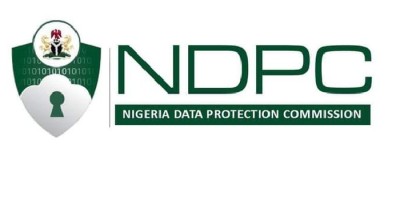- Home
- Grey Matter
- Fintech Update - What To Know About The New Regime For The Licensing And Regulation Of Payments Service Holding Companies In Nigeria
Fintech Update - What To Know About The New Regime For The Licensing And Regulation Of Payments Service Holding Companies In Nigeria
Posted on Tue 17 Aug 2021
- Download Resource
Introduction
On August 3, 2021, the Central Bank of Nigeria (“CBN”), took another step in furtherance of its commitment towards the promotion of an efficient and credible payment system in the country; by issuing a new governing regime for Payments Service Holding Companies (“PSHCs”).
Introduced via a Circular referenced: PSM/DIR/CON/CWO/20/095, the new governing regime, titled: Guidelines for Licensing and Regulation of Payments Service Holding Companies in Nigeria (the “Guidelines”), seeks to prevent the commingling of activities, facilitate the management of risks within the payment service industry, and enable adequate regulatory oversight on the activities of licensed operators. The Guidelines will complement the CBN Circular on New Licence Categorisations for the Nigerian Payments System[1] and other relevant subsidiary legislation made pursuant to the Central Bank of Nigeria Act (2007) and the Banks and Other Financial Institutions Act (2020), as well as other regulatory instruments issued, from time to time, by the CBN and other regulators in the Nigerian financial services sector.

The scope of the Guidelines covers regulated activities in the payments service industry, such as; Mobile Money Operations, Switching and Processing, and Payment Solution Services, and any other activity as may be subsequently approved by the CBN. The Guidelines focus on the structure, licensing, ownership and control, corporate governance issues, permissible & non-permissible activities, prudential requirements and shared services arrangements between PSHCs and their subsidiaries.
This article provides a synopsis of the key provisions of the Guidelines and analyses the likely impact on the development of payment services in the financial system, operations of licensed companies and the overall economy.
The Structure of a PSHC
- A PSHC is required to be non-operating, existing for the sole purpose of holding controlling equity investment in two or more companies, in a parent-subsidiary arrangement;
- A licensed PSHC is required to maintain financial flexibility and capital raising capabilities, which can be used to support its subsidiaries;
- The subsidiaries of a PHSC are required to be payment service providers operating in categories, namely; Mobile Money Operations, Switching and Processing, and Payment Solution Services;
- A PSHC is required to have at least two (2) subsidiaries, which must include a Mobile Money Operator and a Switching Company;
- A PSHC is also permitted to have only two (2) hierarchies. Therefore, a PSHC may have a subsidiary who is also a parent company to another subsidiary (intermediate company). However, the subsidiaries of a PSHC are only permitted to have one more intermediate subsidiary;
- A PSHC is not permitted to engage in the day-to-day management and operation of its subsidiaries; and
- A PSHC may acquire controlling interest in any permissible financial and/or technological company, subject to the prior approval of the CBN. Such controlling interest, as defined by the Guidelines, represents a minimum of fifty-one percent (51%) of the authorized share capital of the entity being acquired.
Licensing and Commencement of Operations
- The Guidelines make extensive provisions on the licensing requirements, such as application fees, licensing fees, and other required information necessary for acquiring a PSHC license;
- A PSHC is required to provide certain information to the CBN, before commencing operations; and
- A PSHC is also required to comply with all applicable CBN guidelines and regulations, and ensure that all its subsidiaries are adequately capitalized at all times.
Corporate Governance

A PSHC shall:
- Ensure that its Board includes at least an individual with experience in the business of subsidiary companies within the Group;
- Be required to have between 5 to 10 Directors, or as may be determined by the CBN from time to time;
- Ensure its Directors and Management are subject to, and comply with, the fitness and propriety requirement (Approved Person’s regime) of the CBN;
- Comply with the CBN Regulations on the disqualification of Board and Management, applicable to Other Financial Institutions.
- Comply with applicable CBN Corporate Governance Guidelines;
- Where applicable, comply with the provisions of the Securities and Exchange Commission (SEC)’s Corporate Governance Guidelines for publicly quoted companies and listed entities in Nigeria (Code of Corporate Governance for Public Companies, 2011); and
- Include its audited financial statement among the contents of its website.
Ownership and Control
- The CBN’s prior approval is required for any shareholding of five percent (5%) and above, or any change in ownership which results in change in control of a PSHC;
- In the case of a traded PSHC, where shares are acquired through the secondary market, the PSHC shall apply for approval from the CBN within 7 days of the acquisition;
- Subsidiaries of a PSHC are prohibited from acquiring shares in the PSHC or shares of other subsidiaries of their PSHC, and intermediate company of another subsidiary;
- A PSHC which loses control of any of its switching and processing company or mobile money operator, or where it has only two (2) subsidiaries, loses control of any of its subsidiaries, for a period exceeding six (6) months, shall cease to be a PSHC, and is required to return its license to the CBN for cancelation;
- Also, a PSHC which loses controlling interest in a subsidiary, shall after cancellation of its license, wholly divest its interest from that subsidiary within six (6) months, to enable the subsidiary continue operations as an independent entity;
- Under the Guidelines, the word “control” shall have the meaning as defined under the IFRS 10 (Consolidated Financial Statements);
- Except with the prior written approval of the CBN, no Director, Shareholder, or Agent of a PSHC shall enter into an agreement which results in the change of control or transfer of shareholding of five percent (5%) and above in the PSHC, provided that; in the case of secondary market transfers, the PSHC shall notify the CBN of such a change, within 7 days; and
- Prior written approval of the CBN is also required for any agreement which results in the disposal, transfer of the whole or any part of the business of a PSHC, the issuance of new shares, the amalgamation, mergers, takeovers or reconstruction of a PSHC.

Permissible and Non-Permissible Activities
- PSHCs are permitted to hold equities in financial and technological subsidiaries that facilitate and/or enhance innovative digital financial services[2];
- A PSHC is allowed to provide broad policy direction, shared services and/or enter into technical or management service contract with any of its subsidiaries, with the prior written approval of the CBN, in respect of areas such as Human Resources, Legal Services, Facility Management, Information Technology, Compliance and Risk Management; and
- Shared Services are required to be provided on arm’s length basis, and Shared Services contracts are to be executed with the consent of the Board of the subsidiaries.
However, a PSHC is prohibited from:
- arrogating to itself any of the powers or functions of the Board of Directors, or internal management responsibilities and obligations of any of its subsidiaries or associates of any such subsidiary;
- interfering in the day-to-day activities of its subsidiaries;
- being involved in the administration and approval process of its subsidiaries, if applicable;
- requiring its subsidiaries or any of its agents to take directives or act on the instructions of the PSHC in its internal decision-making process, without prejudice to the definition of control as defined in the Guidelines;
- having any of its officers or employees, while in the employment of the PSHC, work for any subsidiary, except employees engaged in Shared Services arrangements[3];
- engaging the services of any employee of any of its subsidiaries;
- purchasing/disposing assets from/to its subsidiaries, without the prior written approval of the CBN;
- from appointing as a director, any person, who at the relevant time is a director of any of its subsidiaries, except with the prior written approval of the CBN. Where such an appointment is approved, the aggregate number of directors from the subsidiaries and associates, at any point in time, shall not exceed thirty percent (30%) of the membership of the Board of Directors of the PSHC;
- from appointing as a director into any subsidiary or an associate of such a subsidiary, a person who has served as a director (executive or non-executive) for the maximum allowable period as stipulated by the CBN, until after a minimum period of three (3) years after the expiration of the tenure of such a director, and vice versa; and
- from appointing a serving director as a director of a subsidiary at the same time, except with the written approval of the CBN. Where such an appointment is approved, the number of directors from the PSHC, at any point in time, shall not exceed thirty percent (30%) of the membership of each of the subsidiaries.
Prudential Regulation
- Where a PSHC wholly owns its subsidiaries, then it must have a minimum paid-up capital which exceeds the sum of the minimum regulatory capital / total equity of all its subsidiaries, as may be prescribed from time to time by the CBN;
- Where a PSHC owns less than one hundred percent (100%) of its subsidiaries, its minimum paid-up capital shall exceed the summation of its proportionate holding in the subsidiaries. Excess capital in one subsidiary shall not be used to make up a shortfall in another subsidiary. Furthermore, it is the capital of the PSHC that is applied to the subsidiaries; and
- A PSHC is under obligation to ensure, that its subsidiaries comply with the minimum capital requirements for each license category in the group.
Other key provisions in the Guidelines relate to filing requirements, and this requires a PSHC to make quarterly filings to the CBN, which shall include information on compliance with corporate governance guidelines, whistle blowing, assets and liabilities of the PSHC and its subsidiaries, risk management, internal control, and intra-group transactions.
Remarks

The CBN has, in recent times, taken various measures aimed at developing workable and enabling frameworks for the development of the payments services, electronic and mobile banking architecture; in an overall effort at facilitating the attainment of the apex bank’s financial inclusion goals. The CBN had late last year, released the New Licence Categorisations for the Nigerian Payments System, via a Circular dated December 9, 2020, which delineated payments system operations into four categories, namely: Payment Solution Services (PSS); Mobile Money Operators (MMO); Switching and Processing; and Regulatory Sandbox.
With the release of the Guidelines, operators in the payments services space who intend to operate more than one license category now have clear direction on how to do so. The Guidelines, therefore, set the tone for the consolidation of payment service providers operating under the different license categories.
In our view, the issuance of the Guidelines on the heels of the recent new regulatory regimes for Payment Service Banks and Mobile Money Services, completes the establishment of a clear legal and regulatory framework for a structured and streamlined Fintech Industry in Nigeria.
It is of interest to note that the Guidelines also permit PSHCs, with the approval of the CBN, to acquire entities such as financial and technology companies. This implies the possibility of vertical and horizontal acquisitions and mergers between banks and payment service providers. The introduction of the Guidelines, therefore, signals a positive outlook for the economy, as the Nigerian financial sector is expected to witness more consolidation, driven on the back of Fintech companies operating in the payments sector, going forward.
The Guidelines can be accessed here and for further clarification, you may reach out to us by email: banwigho@banwo-ighodalo.com or through any of our contact persons below:
- To read our Fintech Regulatory Update on the New Licence Categorisations for the Nigerian Payments System, please click here.
- Click here to read our Fintech Update on the new regulatory regime for Mobile Money Services in Nigeria; and
- Read our Fintech Update on the new regulatory regime for Payment Service Banks in Nigeria here.
The Grey Matter Concept is an initiative of the law firm, Banwo & Ighodalo.
DISCLAIMER: This publication is only intended to provide general information on the subject matter and does not by itself create a client/attorney relationship between readers and our Law Firm or serve as legal advice. We are available to provide specific advice on the subject of this newsletter, as may be required.
[1]https://www.cbn.gov.ng/Out/2021/CCD/Approved%20New%20Licence%20Categorization%20Requirements%20Consolidated%20-%202021.pdf
[2] It is not clear from the Guidelines whether these are limited to provision of payment solution services.
[3] This would appear to prohibit secondment arrangements between the PSHC and its subsidiaries













